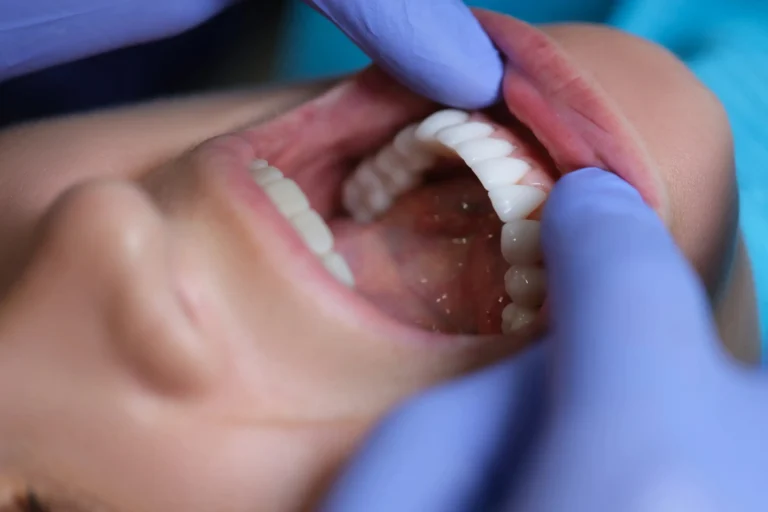It’s probably no revelation that you should attend a dental checkup every six months. Routine examinations help you stay ahead of dental problems and reduce the likelihood of needing treatment.
But if you have fear or anxiety surrounding visiting the dentist for checkups or procedures, you will probably do anything to get out of it. Of course, ignoring your dental health will only make matters worse, and when problems arise, they’re likely to be considerably more anxiety-inducing.
Nobody wants to have worries or phobias they can’t control. Similarly, you wouldn’t choose to have dental issues. So, how can you overcome your fear of the dentist?
Here are ten strategies for fighting your dental phobia and getting the care you need.
1. Work Out Why You Feel Anxious
Anxiety can have many different causes. Some fears stem from bad experiences at the dentist as a child or even as an adult. Others are picked up from family members who were scared of the dentist while you were growing up.
Dental tools like drills are often fear-inducing. Some people feel powerless while they’re in the chair or worry about choking.
You may dislike the smell of dental practices, or the feel of latex gloves could make you uncomfortable.
Think about the things that put you off going to the dentist. Identifying these fears is an important first step in the process of combating them.
2. Talk to Us About Your Fears
Sharing your fears helps. Talking to us about them helps even more. As dentists, we’re the ones who can do something about the way we treat you. Although we can’t always avoid everything that causes anxiety, knowing about these things means we can make adaptations wherever possible.
Working together, we can devise ways to communicate while you can’t speak. We can take breaks and work at a pace that suits you wherever possible.
3. Make Your Appointments During Quiet Periods
More patients may be waiting for appointments at certain points during the day. Although we try to create a relaxing environment throughout the practice — if you feel anxious, a busier waiting area can make you feel more on edge.
Tell our reception team that you’re nervous about your appointment, and we can arrange for you to come at a quieter time.
4. Don’t Come Alone
Bring someone you know and trust to your appointment. Not only will having a partner, friend, or family member with you in the waiting room help you feel more relaxed, but they can also join you in the clinic to support you if needed.
A familiar and supportive face is reassuring when stress levels are naturally high.
5. Distractions Work!
When you’re anxious, your mind is working overtime thinking about all of the worst things that could happen. Of course, these scenarios are unlikely to occur, but having something to distract you can stop you from overthinking and reduce your anxiety levels.
Distractions that can help include:
- Listening to music, audiobooks, or podcasts through noise-canceling headphones
- Playing games or doing puzzles on your phone while waiting
- Reading a book or magazine in the waiting area
6. Learn to Regulate Anxious Feelings
Anxiety is a natural response that all humans have. It’s something that’s developed through evolution to protect us from dangers.
Because you perceive dental treatments as a possible danger, your body naturally produces stress hormones that increase your heart rate and divert blood flow from your brain to your muscles. You’re primed to make a “fight or flight” response.
You can control this by altering the way you breathe. Slowing your breathing right down using deep, controlled breaths for a few minutes will divert the blood back to your brain and help you think more rationally.
Other ways to manage anxiety include mindfulness techniques like body scanning or grounding. Focusing on how the different areas of your body feel or identifying what you can see around you will take your mind off unwanted thoughts.
7. Learn About Any Procedures You Need
If you’re due to have a procedure, the more you know about it, the less anxious you will feel. If you know the facts and what to expect, you’re less likely to invent worst-case scenarios in your mind.
8. Talk to Your GP
Dental fears are common, and they affect the general health of many people. Speak to your doctor about your anxiety.
Your GP may be able to either prescribe anxiety medication to help or refer you for support.
9. Consider Speaking to a Counselor
If you believe you have a deep-seated fear of the dentist, talking it through with a professional can often help. Many counselors specialise in helping people reframe or overcome their fears. Techniques like CBT have an excellent record for long-term treatment of dental anxiety.
10. Understand that Fear Is Normal
You’re not alone—around a third of the population experience dental phobia to some degree. Fear and anxiety are a normal parts of life, but it’s possible to learn to manage them. You’re not abnormal for feeling the way you do.
Dentists Who Care in Ipswich
At Quest Dental, we care about your experience. We’ll do everything we can to make your visit stress-free. Get in touch with us today to book your next appointment.



